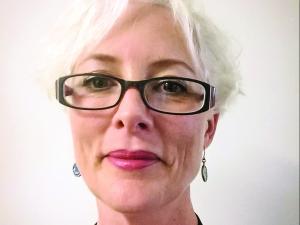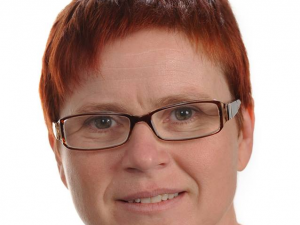Respiratory physician Lutz Beckert considers chronic obstructive pulmonary disease management, including the prevention of COPD, the importance of smoking cessation and pulmonary rehabilitation, and the lifesaving potential of addressing treatable traits. He also discusses the logic of inhaler therapy, moving from single therapy to dual and triple therapy when indicated, as well as other aspects of management
Petition launched for a $6 million women’s health strategy
Petition launched for a $6 million women’s health strategy

We're republishing this article in our Undoctored free access space so it can be read and shared more widely. Please think about supporting us and our journalism – subscribe here
“What we’re actually trying to do this International Women’s Day, is do some work towards achieving a better health system for New Zealand women”
The Gender Justice Collective is on a mission to get $6 million committed to a health strategy for all women, wāhine and trans women in New Zealand.
On 7 March, the collective launched its online petition to urge the Government to create a National Women’s Health and Wellbeing Strategy, and to allocate $6 million to this in Budget 2021.
The petition was launched in time for International Women’s Day today, and is supported by the Royal Australian and New Zealand College of Obstetricians and Gynaecologists.
The chair of RANZCOG’s Te Kāhui Oranga ō Nuku (formerly the New Zealand Committee), Celia Devenish, says via a media release that the college has long called on the Government to address gaps in women’s health services and ensure quality and equitable care is provided to all who need it.
Angela Meyer, a Gender Justice Collective founder, says there is a need to significantly improve the differential health outcomes between women and men, and between different groups of women and girls.
The health system needs to understand, and be designed to meet, the needs of women, Ms Meyer says.
The collective estimates that $6 million amounts to $2.60 per woman in Aotearoa.
Ms Meyer says the campaign arose from a desire to get women’s voices and stories heard at a political level.
“We have all these female empowerment sessions and breakfasts,” she says. “What we’re actually trying to do this International Women’s Day, is do some work towards achieving a better health system for New Zealand women.”
The Gender Justice Collective was formed in 2020. Founding members include Jackie Clark, of The Aunties, Jennifer Curtin, director of the Public Policy Institute at the University of Auckland, and Qiane Matata-Sipu, founder of non-profit social enterprise NUKU.
The team ran a nationwide survey called #YouChoose2020 for women, wāhine, trans women and those who identify as binary. More than 3500 responses were received, on what women wanted from their elected representatives.
“This left us with an enormously useful dataset, where we were able to identity the key issues, specifically that women’s health needs more resources and attention. So we asked what we can advocate for?”
A National Women’s Health Strategy was seen as the most useful solution, says Ms Meyer.
Women’s health continues to be treated as single issues, for example, maternity care, contraception and abortion.
“There’s a myriad of factors that mean women are not getting quality of care without an overarching strategy.
“Australia, Europe, the UK, Canada and the US, all have one, and we don’t – it’s ridiculous.”
Any strategy must employ the principles of Te Ao Māori and hauora, she says.
“We need to ask women what they need and want. It’s not really rocket science, I don’t think we’re asking for too much.”
Prior to the #YouChoose2020 survey, Ms Meyer says she made a lot of assumptions about women’s healthcare in New Zealand.
“I thought we were doing okay, especially as we have a female prime minister, but the survey showed that we are well behind.
“Unless you work in the health sector yourself, you don’t know what you’re missing or what you should be advocating for.”
She says associate health minister Ayesha Verrall and minister for women Jan Tinetti are aware of the issues, but the collective wants to draw them to the attention of male MPs.
Ideally, health minister Andrew Little and finance minister Grant Robertson will support this mahi, Ms Meyer says, but she notes they have not yet met with the collective.







![Barbara Fountain, editor of New Zealand Doctor Rata Aotearoa, and Paul Hutchison, GP and senior medical clinician at Tāmaki Health [Image: Simon Maude]](/sites/default/files/styles/thumbnail_cropped_100/public/2025-03/Barbara%20Fountain%2C%20editor%20of%20New%20Zealand%20Doctor%20Rata%20Aotearoa%2C%20and%20Paul%20Hutchison%2C%20GP%20and%20senior%20medical%20clinician%20at%20T%C4%81maki%20Health%20CR%20Simon%20Maude.jpg?itok=-HbQ1EYA)
![Lori Peters, NP and advanced health improvement practitioner at Mahitahi Hauora, and Jasper Nacilla, NP at The Terrace Medical Centre in Wellington [Image: Simon Maude]](/sites/default/files/styles/thumbnail_cropped_100/public/2025-03/2.%20Lori%20Peters%2C%20NP%20and%20advanced%20HIP%20at%20Mahitahi%20Hauora%2C%20and%20Jasper%20Nacilla%2C%20NP%20at%20The%20Terrace%20Medical%20Centre%20in%20Wellington%20CR%20Simon%20Maude.jpg?itok=sUfbsSF1)
![Ministry of Social Development health and disability coordinator Liz Williams, regional health advisors Mary Mojel and Larah Takarangi, and health and disability coordinators Rebecca Staunton and Myint Than Htut [Image: Simon Maude]](/sites/default/files/styles/thumbnail_cropped_100/public/2025-03/3.%20Ministry%20of%20Social%20Development%27s%20Liz%20Williams%2C%20Mary%20Mojel%2C%20Larah%20Takarangi%2C%20Rebecca%20Staunton%20and%20Myint%20Than%20Htut%20CR%20Simon%20Maude.jpg?itok=9ceOujzC)
![Locum GP Helen Fisher, with Te Kuiti Medical Centre NP Bridget Woodney [Image: Simon Maude]](/sites/default/files/styles/thumbnail_cropped_100/public/2025-03/4.%20Locum%20GP%20Helen%20Fisher%2C%20with%20Te%20Kuiti%20Medical%20Centre%20NP%20Bridget%20Woodney%20CR%20Simon%20Maude.jpg?itok=TJeODetm)
![Ruby Faulkner, GPEP2, with David Small, GPEP3 from The Doctors Greenmeadows in Napier [Image: Simon Maude]](/sites/default/files/styles/thumbnail_cropped_100/public/2025-03/5.%20Ruby%20Faulkner%2C%20GPEP2%2C%20with%20David%20Small%2C%20GPEP3%20from%20The%20Doctors%20Greenmeadows%20in%20Napier%20CR%20Simon%20Maude.jpg?itok=B0u4wsIs)
![Rochelle Langton and Libby Thomas, marketing advisors at the Medical Protection Society [Image: Simon Maude]](/sites/default/files/styles/thumbnail_cropped_100/public/2025-03/6.%20Rochelle%20Langton%20and%20Libby%20Thomas%2C%20marketing%20advisors%20at%20the%20Medical%20Protection%20Society%20CR%20Simon%20Maude.jpg?itok=r52_Cf74)
![Specialist GP Lucy Gibberd, medical advisor at MPS, and Zara Bolam, urgent-care specialist at The Nest Health Centre in Inglewood [Image: Simon Maude]](/sites/default/files/styles/thumbnail_cropped_100/public/2025-03/7.%20Specialist%20GP%20Lucy%20Gibberd%2C%20medical%20advisor%20at%20MPS%2C%20and%20Zara%20Bolam%2C%20urgent-care%20specialist%20at%20The%20Nest%20Health%20Centre%20in%20Inglewood%20CR%20Simon%20Maude.jpg?itok=z8eVoBU3)
![Olivia Blackmore and Trudee Sharp, NPs at Gore Health Centre, and Gaylene Hastie, NP at Queenstown Medical Centre [Image: Simon Maude]](/sites/default/files/styles/thumbnail_cropped_100/public/2025-03/8.%20Olivia%20Blackmore%20and%20Trudee%20Sharp%2C%20NPs%20at%20Gore%20Health%20Centre%2C%20and%20Gaylene%20Hastie%2C%20NP%20at%20Queenstown%20Medical%20Centre%20CR%20Simon%20Maude.jpg?itok=Z6u9d0XH)
![Mary Toloa, specialist GP at Porirua and Union Community Health Service in Wellington, Mara Coler, clinical pharmacist at Tū Ora Compass Health, and Bhavna Mistry, specialist GP at Porirua and Union Community Health Service [Image: Simon Maude]](/sites/default/files/styles/thumbnail_cropped_100/public/2025-03/9.%20Mary%20Toloa%2C%20Porirua%20and%20Union%20Community%20Health%20Service%20in%20Wellington%2C%20Mara%20Coler%2C%20T%C5%AB%20Ora%20Compass%20Health%2C%20and%20Bhavna%20Mistry%2C%20PUCHS%20CR%20Simon%20Maude.jpg?itok=kpChr0cc)